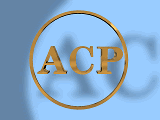American Catholic Press
16565 S. State Street, South Holland, Illinois 60473
|
||||||||||||||||||||
|
|
||||||||||||||||||||
|
||||||||||||||||||||
by E. Byron Anderson Pronouncing the Name of God Jewish and Christian traditions and scholarship seem to agree that the primary motivation for the taboo against pronouncing, or even writing, the Name comes from a fear of profanation of God’s name, a fear grounded in an interpretation (for some a misinterpretation) of the third commandment against the misuse of God’s name (i.e., “taking the Lord’s name in vain”) and in the understanding that to use a name is to exert a form of control over the one named. Scholars cannot provide a certain date when pronunciation of the divine name was no longer permitted. They do suggest that the Name was “originally spoken by priests in the temple in pronouncing benediction” and that there was a gradual diminishment in pronunciation and audibility after the destruction of the Second Temple.12 The early Christian community seems to have honored the tradition of not speaking or writing the Name, at least if we attend to the “absence of the Tetragrammaton and its almost universal replacement by [kyrios]” in Christian copies of the LXX.13 How, then, have contemporary Christians come to use the Name? Why do Christians increasingly pronounce the Name in worship, if Jews do not do so? As Michael Gilligan observes, the liturgical use of the Name and its appearance in Christian song is a recent innovation, perhaps the result of the French and English versions of the Jerusalem Bible.14 But, given the amount of attention the church now gives to the ways in which ritual language forms persons in structures of power and belief, I find it surprising that questions about the use of the Name are generally ignored. For example, Mary Collins, in the context of discussing inclusive language and the church’s privileging of “Father” as the name of God, talks about the fact that the Name and Abba are “privileged names for the God of Jesus.” Her critique of Abba/Father leads her to argue that the Name is the “sole normative biblical revelation of the divine name.”15 But given this argument, she neither considers how the Name is privileged for both Christian and Jew nor the consequences of such privilege (such as not using it liturgically). Missing in much discussion is the awareness of any tension between the privileged use of a name and the reservation of that privilege to particular people, places, or liturgical contexts. And, despite regional Roman Catholic prohibitions against the public use of the Name in worship, such as the 1986 Ecumenical Guidelines of the Province of Chicago, it continues to appear (primarily) in contemporary Roman Catholic music and worship resources.16 Some might question why this should be an issue in Jewish-Christian dialogue. Johanna van Wijk-Bos answers this question as boldly as anyone. She argues that willingly ignoring “Jewish scruples regarding the name of God” such as in Wellhausen’s work leads to “an implicit lack of respect for Jews…accompanied by an explicit lack of respect for God’s name.”17 It is not only disrespect that concerns her, but also the consequences of that disrespect: “The full vocalization of the Tetragrammaton partakes of the ‘teaching of contempt’ that is an aspect of the hatred of Jews that made the Shoah possible.”18 She argues that Christians, on the one hand, have “feigned innocence of the connections between the silence surrounding the Shoah and the spokenness of God’s name” and, on the other hand, combined this innocence with an arrogance that suggests it is universal practice to pronounce God’s name and that the taboo against such pronunciation is a superstition to be set aside (as did Protestant reformers such as Calvin).19 Whether in feigned innocence or in arrogance, Christians – and here those responsible for shaping Christian worship – must ask ourselves if we continue to treat the prohibition as superstition, as part of the “old” covenant, or as simply not applying to Christians. We need ask ourselves what it means to truly honor the divine Name. Then, as Michael Gilligan suggests, we might ask ourselves what simple charity for God’s people requires of us.20 We should not use the Name in worship, but we should sing and pray “Blessed be the Name.” exerpt from Studies in Christian-Jewish Relations, Anderson, E.Byron,“Christian Prayer and Song in a Post-Holocaust Church,”Volume 1 (2005-2006): pp.106-108 References: 12 G. H. Parke-Taylor, YAHWEH:
The Divine Name in the Bible (Waterloo,
Ont.: Wilfrid Laurier University Press, 1975), 10, 79, 86-88. 15 Mary Collins, “Naming God in Public Prayer,” in
Mary Collins, ed.,
Worship: Renewal to Practice (Washington, DC: Pastoral Press, 1989),
223. The entire article is available for print in PDF format.
|
||||||||||||||||||||
